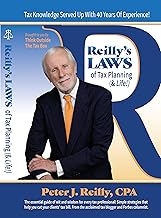Originally published on Passive Activities and Other Oxymorons on June 1st, 2011.
____________________________________________________________________________
SALMAN RANCH, LTD. v. COMM., Cite as 107 AFTR 2d 2011-XXXX
Although it is a little lawyerly for me I’ve been following cases about the circumstances in which a six year statute of limitations can be triggered by basis overstatements. I wrote about three cases which gave three different answers with a follow-up that indicated that the Tax Court is sticking with the three year statute. Now the tenth circuit weighs in.
This decision follows the reasoning in the Grapevine case, by the Federal Circuit that the IRS regulations, which would require the six year statute, are entitled to deference even though they were issued after the affected tax years (2001 and 2002). This case had an extra wrinkle in that the same partnership with the same facts had gotten a ruling from the Court of Claims that the three year statute applied. The Court noted one big difference. The regulations:
The Partnership contends that because the Federal Circuit has already held for the 1999 tax year “that the alleged overstatement of the basis by the Partnership did not constitute an omission from gross income under § 6501(e)(1)(A),” Salman Ranch II, 573 F.3d at 1377, we are bound by collateral estoppel to decide the same. We disagree. While the Partnership is correct that Salman Ranch II involved the same parties, relevant facts, and issue as this case, it can no longer contend that the “applicable legal rules remain unchanged.”Sunnen , 333 U.S. at 600.
As we have held, we must give Chevron deference to the new treasury regulation, and it is readily apparent that the regulation “so change the legal atmosphere as to render the rule of collateral estoppel inapplicable” in this appeal. See Sunnen, 333 U.S. at 600. Any suggestion by the Partnership that the regulation cannot be the source of intervening authority is belied by the Court’s decision in Sunnen, a tax case. There, the Court made clear that “an interposed alteration in the pertinent statutory provisions or Treasury regulations” is sufficient to render collateral estoppel unwarranted. Id. at 601. This is so, the Court said, because the principle of collateral estoppel “is designed to prevent repetitious lawsuits over matters which have once been decided and which have remained substantially static, factually and legally. It is not meant to create vested rights in decisions that have become obsolete or erroneous with time, thereby causing inequities among taxpayers.” Id. at 599 (emphasis added). Thus, “where the situation is vitally altered between the time of the first judgment and the second, the prior determination is not conclusive.” Id. at 600. We hold that the treasury regulation is a new intervening authority which requires us to depart from Salman Ranch II.
Decisions like this one and Grapevine might have more far reaching implications. The next time someone finds Son of Boss style “loopholes”, there may be the threat of them being closed by retroactive regulation.































































































